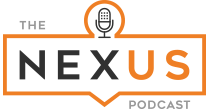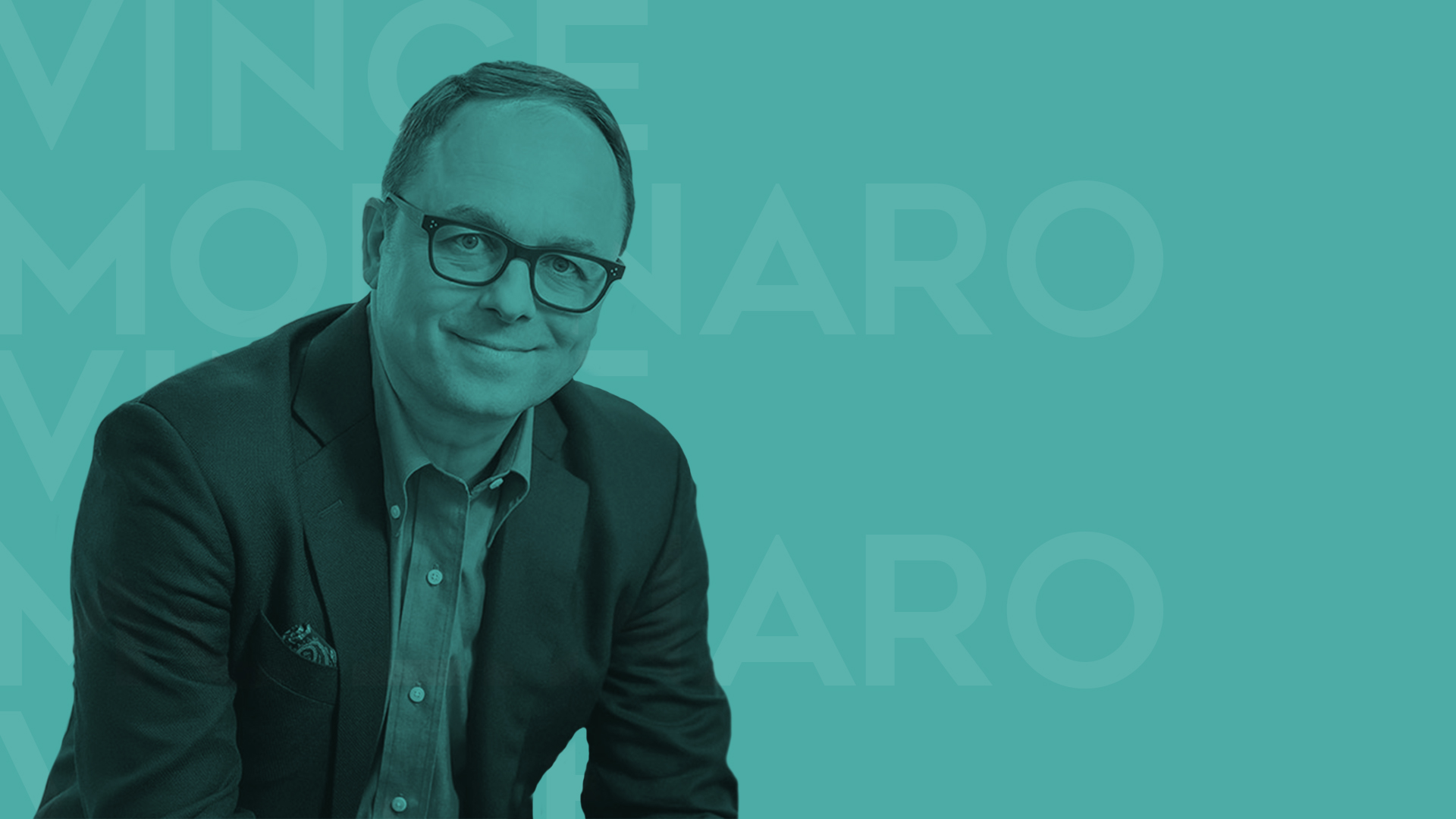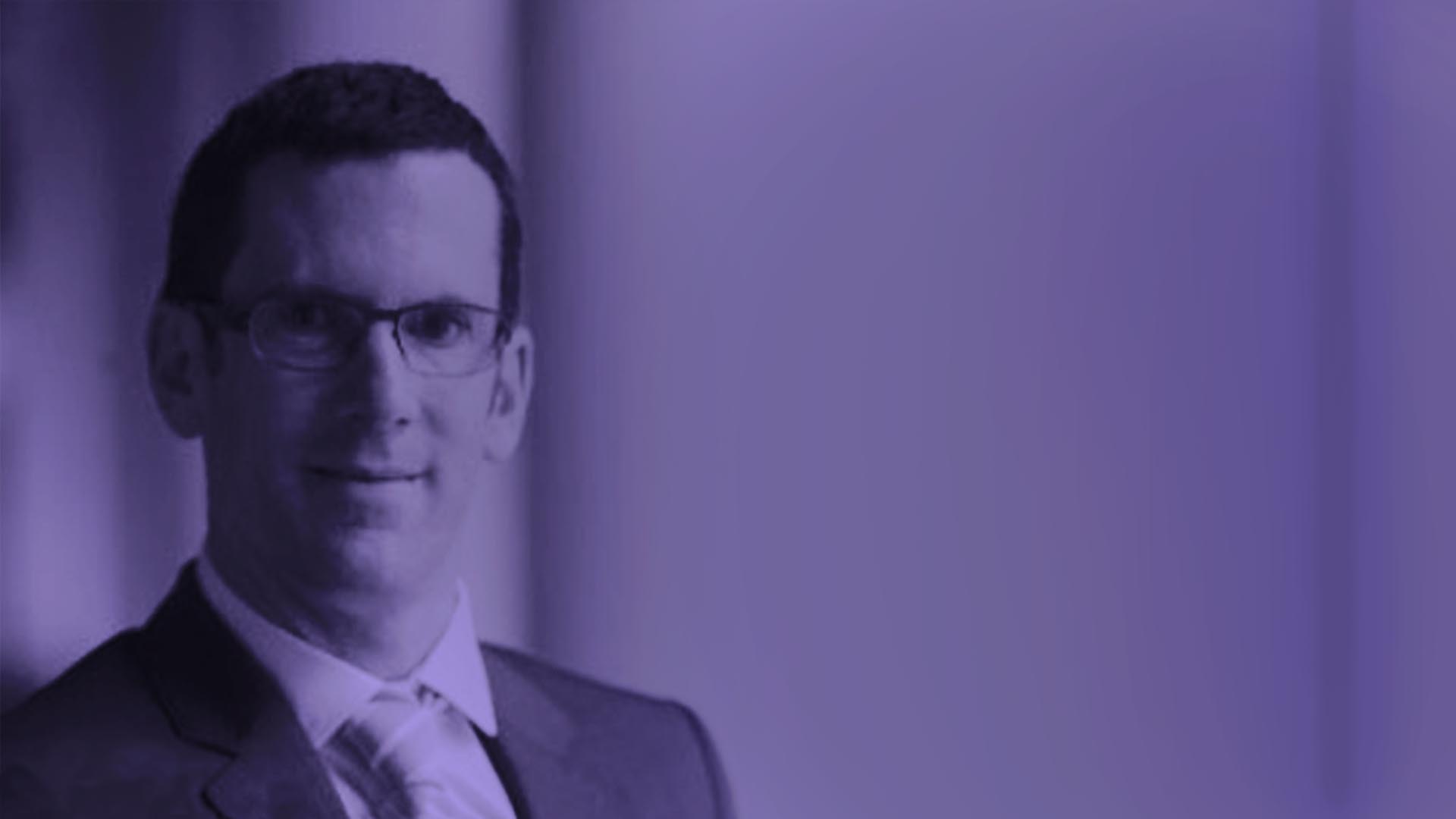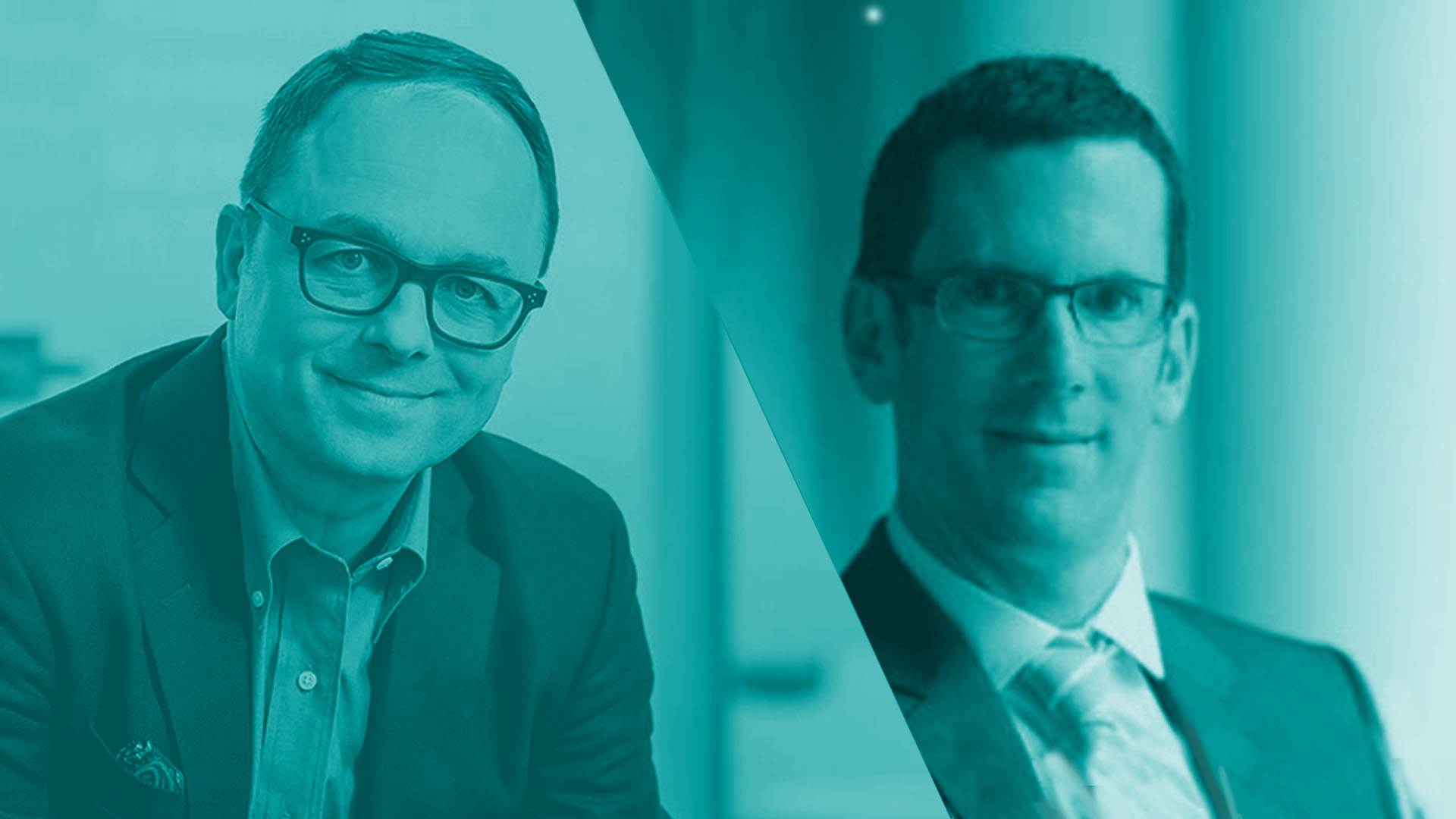Tips on managing colleagues you may never see in person again with Dr. Vince Molinaro
If the pandemic has taught us anything, it’s that we can be pretty adaptable when we choose to be. Between the garbled audio on video conferences and fixing snacks for our kids between calls, many of us have been able to make Work From Home work. However, there’s one thing business leaders still need to figure out – how they show up for their people (and we’re not just talking about the picture on their Zoom profile). Leadership consultant and bestselling author Vince Molinaro joins us to share a few tips on how to lead in a remote world.
Chris Nelson [00:00:02] In May of 2020, Jack Dorsey of Twitter made what could prove to be his most disruptive move yet, he announced that as a result of their experience working remotely during the pandemic, some Twitter employees could continue to do so for as long as they want. Several employers followed suit, inspiring all kinds of think pieces on the demise of the office or the coming commercial real estate apocalypse. But the numbers are compelling. A recent Harris poll revealed that 65 percent of people currently working remotely feel more productive. Seventy seven percent say they are finding new times to be productive outside of business hours, and 80 percent say they can better manage interruptions from coworkers working from home and they can from the office. So processes are evolving, protocols are developing. Zoom is zooming. And it seems like we’re on our way to figuring out how to make this whole work from home thing work.
Chris Nelson [00:00:57] But according to our guest on this episode, there’s a crucial aspect of remote work that we’re overlooking, and that’s leadership.
Chris Nelson [00:01:05] What happens when Michael Scott no longer has a Dunder Mifflin to drive into every morning? According to Dr. Vince Molinaro, virtual leadership comes with all kinds of nuances and tests that leaders need to prepare themselves for today if they’re to succeed. And he should know, since he’s devoted his career to helping leaders be better leaders.
Chris Nelson [00:01:25] Vince is the author of The New York Times best selling book, The Leadership Contract, and he joins me today at the Nexus.
Chris Nelson [00:01:36] The Nexus, a place where people converge and connect on this podcast, we look at the things that are changing the way all of us do our jobs. We’re going to take a quick peek into the minds of those people who are helping us change with them: scientists, HR leaders and experts in human performance.
Chris Nelson [00:01:52] I’m Chris Nelson.
Chris Nelson [00:01:55] Vince, welcome.
Vince Molinaro [00:01:57] Thanks for having me. I’m really excited about the chat.
Chris Nelson [00:01:59] In preparing for this interview, you and I had a chance to speak beforehand and I asked you what leaders weren’t thinking about during the pandemic and what and weren’t thinking about that they needed to. And your answer sort of surprised me. I don’t want to ruin the surprise for everyone else. Perhaps you could tell me what you said.
Vince Molinaro [00:02:17] I did a little poll on LinkedIn to identify what are the primary challenges you’re facing right now.
Vince Molinaro [00:02:25] And the top two that came up were leading in a period of uncertainty and ambiguity, which is understandable to having to make really tough business decisions. I had put leading your virtual team and remote workers as one of the options, and that got a very, very low response rate, which was a bit surprising. So as I’ve talked to leaders who are part of my ongoing community that I talk to on a regular basis, what they’ve been finding is a lot of leaders either are assuming they’ve got it under control and underestimating what’s really required or it’s not even something they’re thinking about because it’s so foreign for how they’ve been typically leading.
Chris Nelson [00:03:02] How equipped are they to do it, just based on your informal surveys across the leadership universe?
Vince Molinaro [00:03:08] I would say that on the whole, we’re probably not well equipped to lead in this new way. We kind of come into covid with understanding that issues of employee engagement weren’t great before covid and we really weren’t going in as strong as we could be.
Chris Nelson [00:03:23] Let’s take a moment here and let’s say, you know, all the things, all the concepts, the ideas that you sort of talk about in The Leadership Contract, let’s accept those sort of table stakes for any leader to do their job effectively. I’d love to get at the nuances of virtual leadership. What are the things, what are the behaviors, the actions that a leader needs to take in that new environment that they probably didn’t need to do when they were interacting physically with their direct reports?
Vince Molinaro [00:03:50] In many ways, what it means to be a leader doesn’t necessarily change. You’re still there to drive performance. You’re still there to kind of create a sense of engagement, to align people to a vision. All those things really don’t change. What I think happens is certain things become even more critical to kind of get right.
Vince Molinaro [00:04:11] So no one is really setting high standards of performance in an environment, whether it’s an office or other type of workplace where everyone congregated together. It was easier for a leader to bring a team together if they needed to, or to rely on random points of connection with their employees to have conversations. In a virtual world, you may feel more reluctance to challenge a poor performer to address an issue that needs to be confronted because you feel that be so much easier to do this face to face. Well, the reality was most leaders weren’t doing it, when they could do it face to face and now it’s just become a bit more complex. So it means leaders have to be far more deliberate in reaching out, connecting and communicating with their teams and with individuals on a regular basis.
Vince Molinaro [00:05:01] Second behavior that becomes critical is being very good at communicating context and clarity around the strategy.
Vince Molinaro [00:05:10] It’s something that leaders weren’t particularly great at and certainly pre covid. But now it becomes even more important because I think any kind of change and certainly the dramatic change we’re facing really unsettles people. And so you really need to just kind of reinforce what’s important, what is a strategy, what are the imperatives and how do people’s work contribute to driving that success?
Vince Molinaro [00:05:34] The other behavior that we hear about and that the research reveals is that leaders are very good at bringing a sense of optimism about the company and its future.
Vince Molinaro [00:05:44] And I think that’s really, really critical right now. There’s a quote that I came across a while back that says it’s pivotal for leaders that in a crisis don’t become the crisis. You need to inspire hope and faith for people.
Vince Molinaro [00:05:57] And then the last piece that really becomes critical is you’ve just got to be doing a much more deliberate job of connecting with people to see how they’re doing emotionally.
Vince Molinaro [00:06:07] At this moment in time, our employees are leading more complicated lives. They’re not commuting and whatnot, but certainly managing things on the home front becomes more challenging. I was on a webinar where one CEO talked about how through this stay at home orders… They didn’t realize how many of their employees actually lived alone. And so it became paramount for him to ensure that managers were reaching out to their employees. Because it’s one thing to be working at home when you’ve got a family, it’s another thing to be there completely by yourself, completely disconnected, completely isolated. And so that’s something you’ve got to pay more attention to.
Chris Nelson [00:06:44] Whereas before the proximity of people to each other meant there are certain things you didn’t have to be as attentive about. Now you have to be attentive about them all the time.
Vince Molinaro [00:06:54] Yeah. And one of the things I because I led global virtual teams, you could be on a call at 6:00 a.m. and then you’re on a stream of back to back calls and all of a sudden at six p.m.. But what I found was that as the day progressed, I had to start allowing extra time in meetings, because if you don’t do it, they’re going to be distracted and you won’t get what you got to get to anyways.
Chris Nelson [00:07:14] An environment like this, leaders almost have to equip the people working for them to almost kind of lead themselves. How do leaders sort of resolve that within themselves and sort of telegraph the idea that they’re trusting these people to get this work done?
Vince Molinaro [00:07:28] It’s such a great point you raise.
Vince Molinaro [00:07:31] There was a great quote years back, Ricardo Semler, who was a Brazilian business leader who who wrote a book, and in it he kind of observed how what organizations did was hired adults, brought them into companies and treated them like children.
Vince Molinaro [00:07:45] And I think that’s something that, you know, we have to be honest with ourselves, is how have I led my teams before and what can I do now, even virtually if trust isn’t where it needs to be, how do I demonstrate that trust and that confidence in people. Trust is pivotal. And I would say that if pre covid you were a micromanager, someone who didn’t trust employees, you’re going to have a hard time now because you really don’t see people in action. It’s all got to be about results and what people are producing. And so you’ve got to trust that in this world now, your employees and your team members are going to be adults.
Chris Nelson [00:08:25] What is the value of leaders being mindful to set boundaries with or encourage their workers to set boundaries around the work they’re doing?
Vince Molinaro [00:08:33] That’s where leaders have to pause and be really deliberate about how they’re showing up and how they want to show up, because that’s exactly right.
Vince Molinaro [00:08:42] There’s a lot of bleeding going on between, you know, personal and professional life, between what constitutes a typical workday. An office would tend to guide those things because, you know, the office doors didn’t open until 8:00. You can get in at a certain time and normally you left at a certain time. So I think leaders need to be mindful of what are the expectations you have of your team and your employees and be mindful of what hours of the day you’re sending emails know. There’s a number of those things we’ve got to be more mindful of, deliberate of because we could find ourselves in this trap where we feel like we’re working twenty four hours and that ultimately long term erodes any productivity gains we may realize by having people work remotely.
Chris Nelson [00:09:27] Are there any shortcuts for leaders, any quick fixes, things that they can implement or try to day that would accellerate their learning or their expertize or their ability to do that?
Vince Molinaro [00:09:37] Well, for me, it’s always about this. I call it is ESL framework. What’s the environment and context? What are we trying to achieve? What’s our strategy? That’s what the stands for. And how do we need to behave as leaders and what do we expect from our employees? And that becomes a bit of a mental device right where you are… You’re constantly kind of getting a sense of, OK, what’s the context? Either what’s happening out there in our industry, what’s happening within the organization? People want to understand that and know that. So you need to kind of do your job to get as equipped on knowing where things are at regarding that, then it’s so what’s our strategy to be successful, to win in our market, to drive long term results?
Vince Molinaro [00:10:18] And then finally, what do I expect of you? What do we need to do as a team to rally around each other to drive success? What is our response to the situation we find ourselves in? Let’s remind them of what’s critical from our strategy and what we have to deliver and just reinforce your your standards and expectations. And that can be a framework for an informal conversation or formal conversation. But I think that’s a really simple way in how leaders can kind of embed that practice on a regular basis.
Chris Nelson [00:10:47] Vince – I want to thank you for making time to chat with me.
Vince Molinaro [00:10:50] Thanks so much, Chris. Really appreciated the conversation.
Chris Nelson [00:10:54] If you want to read more of Vince’s thoughts on leadership, I encourage you to read his book, The Leadership Contract, or visit his website at the leadership contract dot com, where you can find all kinds of great resources, including his new online leadership course. And if you think you need to prepare the leaders at your company for a future in virtual leadership, then let the people at Nexus Communications help. Not only do they produce this amazing podcast, they’ve been helping companies prepare leaders for more than 20 years with industry leading strategies, programs and products. You can find us at Nexus Communications dot com. That’s a N E X U S communications dot com. And please be sure to like us on iTunes, Spotify or wherever you happen to find us. I’m Chris Nelson. Thanks for listening.









